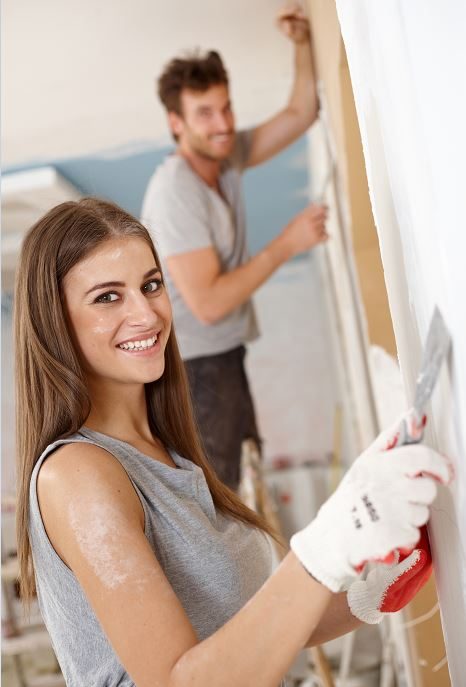For those that own a home, you know it’s commonly one of the biggest investments in a portfolio. But not all of us treat it this way. Before deciding what to upgrade next, consider how it will increase the value of your home.
To help you get in the habit, we measured a handful of budget-friendly upgrades and how they contribute to your home’s resale value. Organized on a scale of 0-3 stars, three being the most value-added, find out how you can start leveraging one of your largest assets.
Cheap Home Upgrades & Updates That Increase Home Value
Curb Appeal: First Impressions Matter
Overall Added value: ★★★
Though the adage may seem tired, it is absolutely true: first impressions matter immensely. Not only does a well-manicured yard appear inviting to potential buyers, but it also encourages outdoor activities for the current tenants. In general, landscaping returns 100 percent at resale. Depending on the size of your property and the current condition of the space, you should invest anywhere between $0 and $5,000.
Updates and maintenance are generally cheaper if you do the work yourself, though it is important to factor in the time and effort you wish to put in. If you’re not a gardener or are feeling lost, you can always check with your local garden center. These companies will usually offer free design services, vegetation recommendations, and general advice suited to your property.
Fertilizing and weed control are two relatively cheap and manageable investments, as are planting native foliage and bee and butterfly friendly flowers. Native plants are accustomed to their environment already, and thus need little to no maintenance over time—a feature that is both appealing to homeowners and good for the local ecology. Planter boxes are another excellent option, as they are relatively cheap (between $20 and $100) and provide space for urban gardening.
Elevate Your Kitchen
Overall Added Value: ★★-★★★
Your kitchen should merge form and function, projecting style and elegance while maintaining utility. Kitchen remodels—even small ones—can get expensive, but are worth the investment, as minor remodels recoup an average of 98.5 percent. Of course, larger projects like recessed lighting and major countertop upgrades will recoup at a higher percentage but are only worth the cash if your home is worth over $500,000.
You can go with cheaper countertop upgrades like Formica or butcher block and incorporate a backsplash. These budget-friendly options may not quite reach the three-star return but sit at a solid two stars with lots of potential. For example, installing lighting under the cabinets slightly increases your kitchen value, as does updating cabinet pulls. The overall effect will modernize your kitchen for resale while also respecting your bank account.
The Little Things
Overall Added Value: ★-★★
Attention to detail gives the impression that you have cared for your home, and you have! Updating old or discolored light switches and outlet covers, as well as molding, doorknobs, and other small fixtures like drawer pulls, taps, and faucet handles add value with little upfront cost. For example, upgrading your kitchen cabinet pulls could cost you anywhere from $80-$800 at a cost of $2-$20 a handle.
Revamping all the little things should only cost around $1,000 while recouping around 66 percent. Larger detail projects like adding hardwood, painting, and removing popcorn ceilings returns an average of 40 percent and is easy to do without professional help. However, if your ceilings contain asbestos or lead, you’ll want a professional to take care of it. While this will run you around $1,000-$1,500, it’s worth saving yourself a health hazard in the long run.
A home’s paint walls tell age, wear, and tear. Investing in high-quality paint and taking on the task over a weekend will only run you $60-$200, depending on how many initial materials you need to buy. To get the most bang for your buck, paint only the high-traffic areas to start. Painting neutral colors will give you the most return as it allows a potential buyer to envision themselves living in the home easier.

